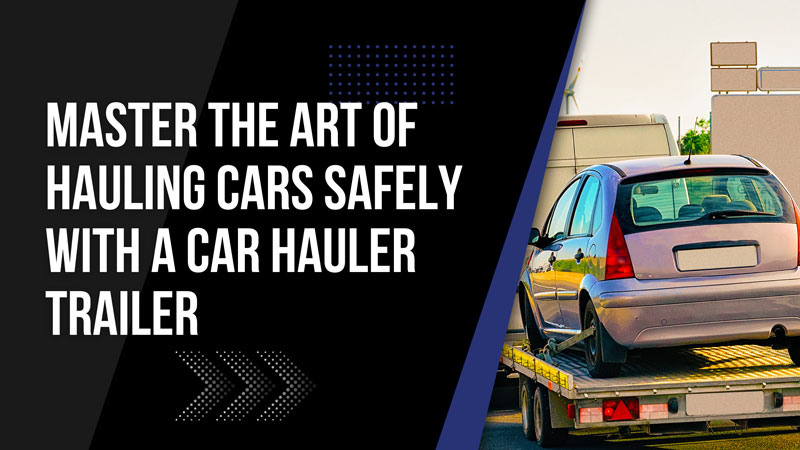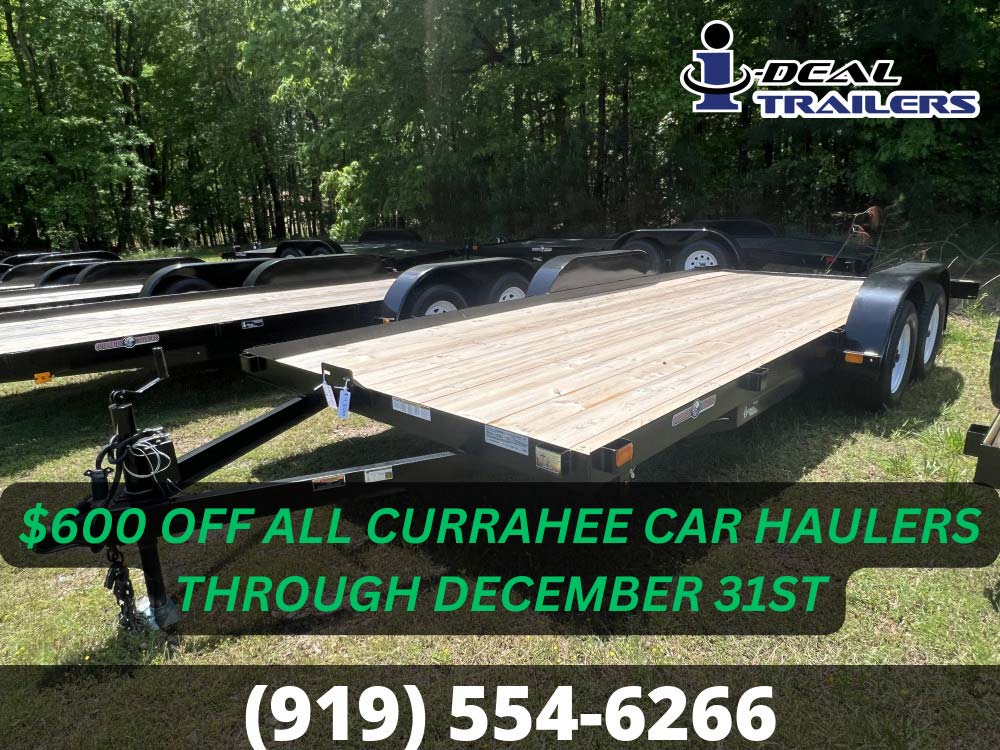
Transporting a car from one location to another can be a daunting task, whether it's for personal reasons or professional automotive services. That's when a car hauler trailer comes into play—a reliable solution for safe, efficient, and worry-free car transportation. That said, let us dive into the safety precautions and tips to help you maximize your car hauler trailer experience. With proper planning and attention to detail, you can confidently transport cars and keep them in pristine condition throughout the journey. Let's get started on mastering the art of car hauling with the invaluable insights provided in this article and the expert guidance at I-Deal Trailers.
Choosing the Right Car Hauler Trailer for Your Needs
The first step towards mastering car hauling is selecting the right trailer based on your specific requirements. Here are some popular types of car hauler trailers:
- Open Car Haulers: Open car haulers are the most common and budget-friendly option for transporting vehicles. They are easy to maneuver, lightweight, and available in various sizes to accommodate one or multiple cars. The open design allows for versatile arrangement options and easy access to your vehicle during transport. However, open car haulers provide less protection from weather, dust, and debris, which could be a concern when hauling high-value cars.
- Enclosed Car Haulers: For transporting classic, luxury, or high-performance vehicles, an enclosed car hauler is an ideal choice, as it offers superior protection from the elements. These trailers are equipped with a roof and walls, preserving the vehicle's exterior from potential damage. Enclosed car haulers may also feature climate control, customizable tie-down options, and cabinetry for additional storage, but they are more expensive to rent than open car haulers.
- Tow Dollies and Flatbed Trailers: Tow dollies and flatbed trailers are alternative options for hauling cars but serve slightly different purposes. A tow dolly lifts the front wheels off the ground, leaving the rear wheels in contact with the road. This option is typically used for short, local trips and may require additional considerations for safe and legal towing. Flatbed trailers, on the other hand, can accommodate both cars and other cargo, offering flexibility but less specialized protection for your vehicle.
Preparing and Loading Your Car for Safe Transportation
Once you've selected the appropriate car hauler trailer, the next critical aspect is ensuring your vehicle is adequately prepared, loaded, and secured for safe transportation.
Inspect and Prepare Your Vehicle
Before loading your car onto the trailer, conduct a thorough inspection of its working condition. Here's a checklist of items to review:
- Examine the tires for proper inflation and check for any leaks or damage.
- Check the car's fluid levels and secure the caps.
- Remove any loose items or debris that may cause damage during transport.
- Disable the car alarm to prevent it from triggering during the trip.
- Take pictures of the car's exterior, documenting any existing scratches, dings, or similar conditions.
Safely Load Your Car onto the Trailer
Loading your car requires careful attention to detail to ensure its safety. Follow these steps for a successful and damage-free process:
- Position the car hauler trailer on level ground and engage the tow vehicle's parking brake.
- Lower any trailer ramps or adjust the tilt mechanism according to the trailer type.
- Align your car with the ramps or trailer deck and slowly drive or push it up the incline while maintaining control.
- Ensure the vehicle is parked straight, with adequate space on all sides.
Secure Your Car for Transportation
Properly securing your car on the trailer involves using appropriate tie-down equipment and tensioning techniques:
- Use wheel straps or over-the-tire netting systems to keep the vehicle in place. Alternatively, use axle straps or chains for off-road or specialty vehicles.
- Tighten tie-downs in a crisscross pattern to distribute tension evenly and prevent shifting during transit.
- Re-check the tension of the straps or chains once you’ve reached your destination, as they can loosen over time.
Adhere to Safe Driving Practices While Towing a Car Hauler
Towing a car hauler with a loaded vehicle requires specific driving habits to ensure safety for you and your car:
- Allow for extra braking distance and slower acceleration due to the added weight.
- Be mindful of the trailer’s width and clearance when navigating turns and narrow spaces.
- Monitor your rearview mirrors frequently to ensure the trailer, wheels, and tie-downs are secure.
Conclusion
Renting a car hauler trailer for transporting vehicles is an efficient and cost-effective option, but mastering the art of car hauling requires careful preparation, smart loading techniques, and safe driving habits. Whether you're hauling a classic automobile or a daily commuter, your attention to detail and diligence in following best practices will result in a successful transportation experience.
If you need expert advice or professional assistance in selecting the perfect car hauler trailer for your needs, look no further than I-Deal Trailers. Our knowledgeable staff can guide you through the process and ensure you're well-equipped to handle your car transportation project confidently. Contact us today to embark on a smooth and safe car-hauling journey!
About Us
Are you looking for a reliable company to buy a trailer for your next project? Look no further than I-Deal Trailers. We are a family-owned and managed business based in Wake Forest, NC. And we have everything you need in terms of trailers, whether it is a utility trailer, a dump trailer, or even a gooseneck trailer. We’ve got you covered.We also help provide financing options to our clients. You can reach us at (919) 554-6266 or fill out our contact form to learn more.

